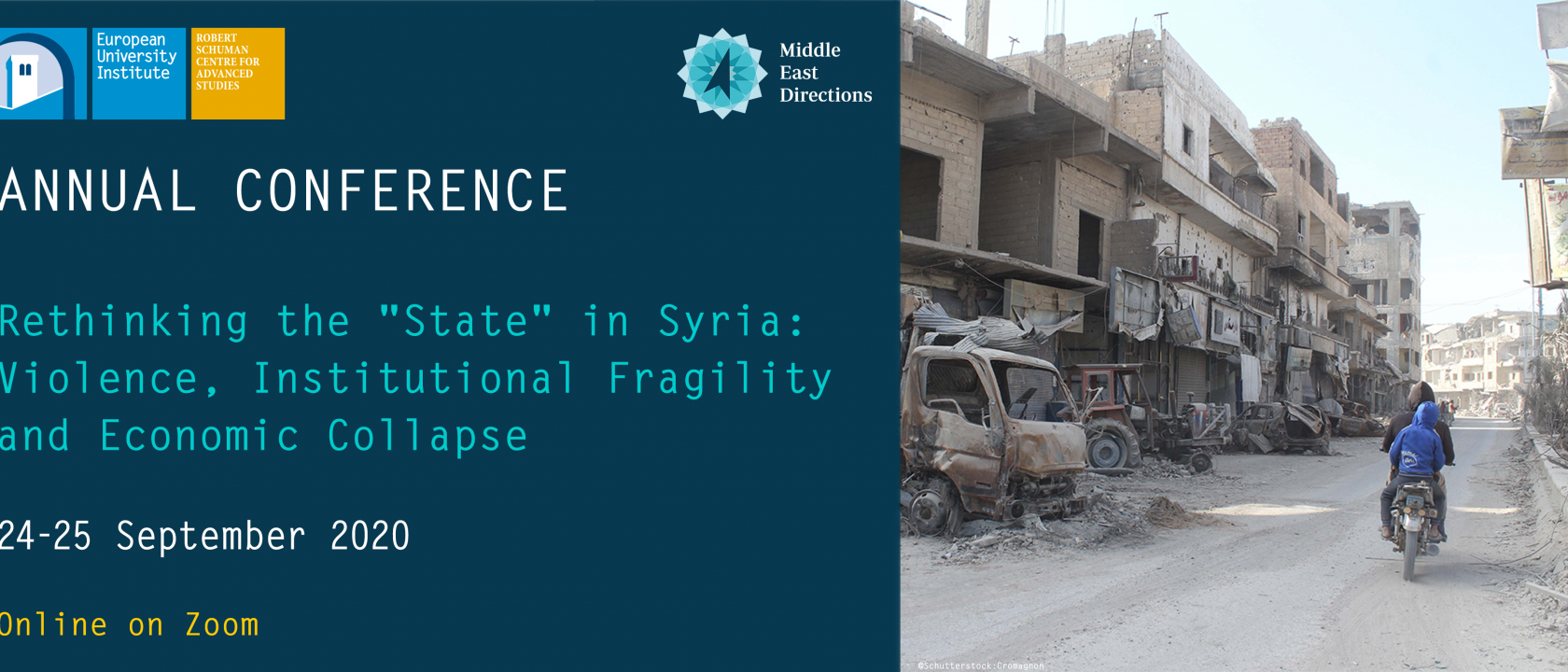24-25 September 2020, online
This conference will close the first stage of the Wartime and Post-Conflict in Syria project (WPCS) which has provided operational and strategic analysis of the prospects, challenges, trends and policy options in the Syrian conflict since October 2018. The Wartime and Post-Conflict in Syria project is funded by the European Union and implemented in partnership with the Center for Operational Analysis and Research (COAR).
The conference will provide academic analysis and fieldwork-research findings on the main local dynamics and actors to question the features of the state ‘from below’ after nine years of conflict. The Syria conflict has fundamentally transformed Syria’s centralized authoritarian security state. It has resulted in territorial, security and economic fragmentation, in the failure of the central State to restore order and face economic challenges, and in the military interventions of external actors. Will post-conflict Syria be marked by a transactional state, a failed state or a fierce state? What are the implications for the international Syria response?
The Annual Conference is structured in two thematic panels (upon invitation) followed by a policy roundtable.
The policy roundtable “Regional and international involvement in post-war countries: in which way could external interventions contribute to the stabilization of MENA conflicts? Comparative perspectives” is scheduled on Friday 25 September from 16:30 until 18:30 and is free for registration.
The two panels, in which researchers from the European University Institute (EUI) and the Center for Operational Analysis and Research (COAR) will present their fieldwork-research findings, are dedicated respectively to:
· Who governs in fragmented Syria? Decentralisation versus Centralisation
· The collapsing economy and its impact on donors’ strategy
The roundtable will discuss regional and international involvement in post-war countries in comparative perspectives: in which way could external interventions contribute to the stabilization of MENA conflicts? A selected group of international experts from the worlds of academia and policymaking will share their analysis on the meaning and effectiveness of the stabilization policies implemented by international actors (Russia, Turkey, US, EU, UAE) in war-torn countries (Syria and Libya).



